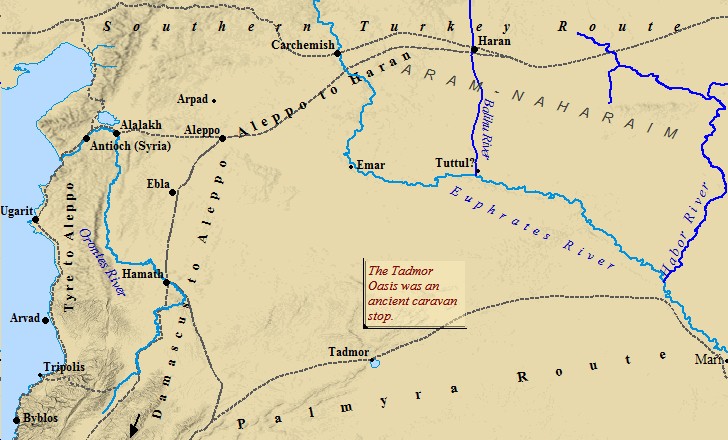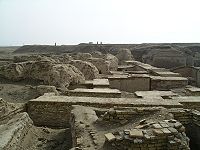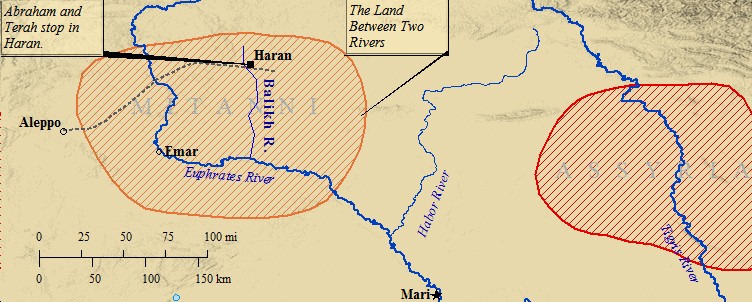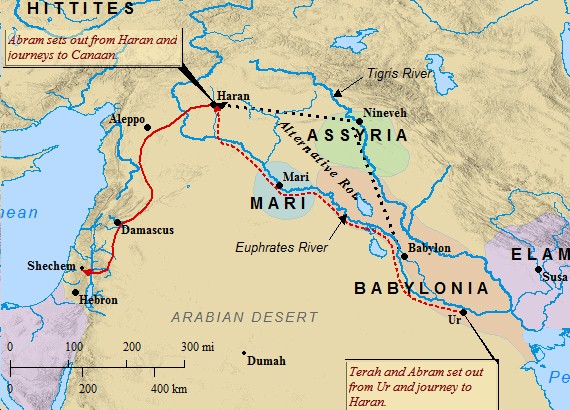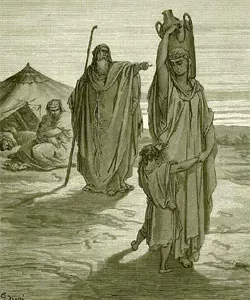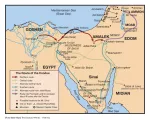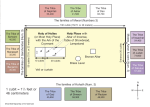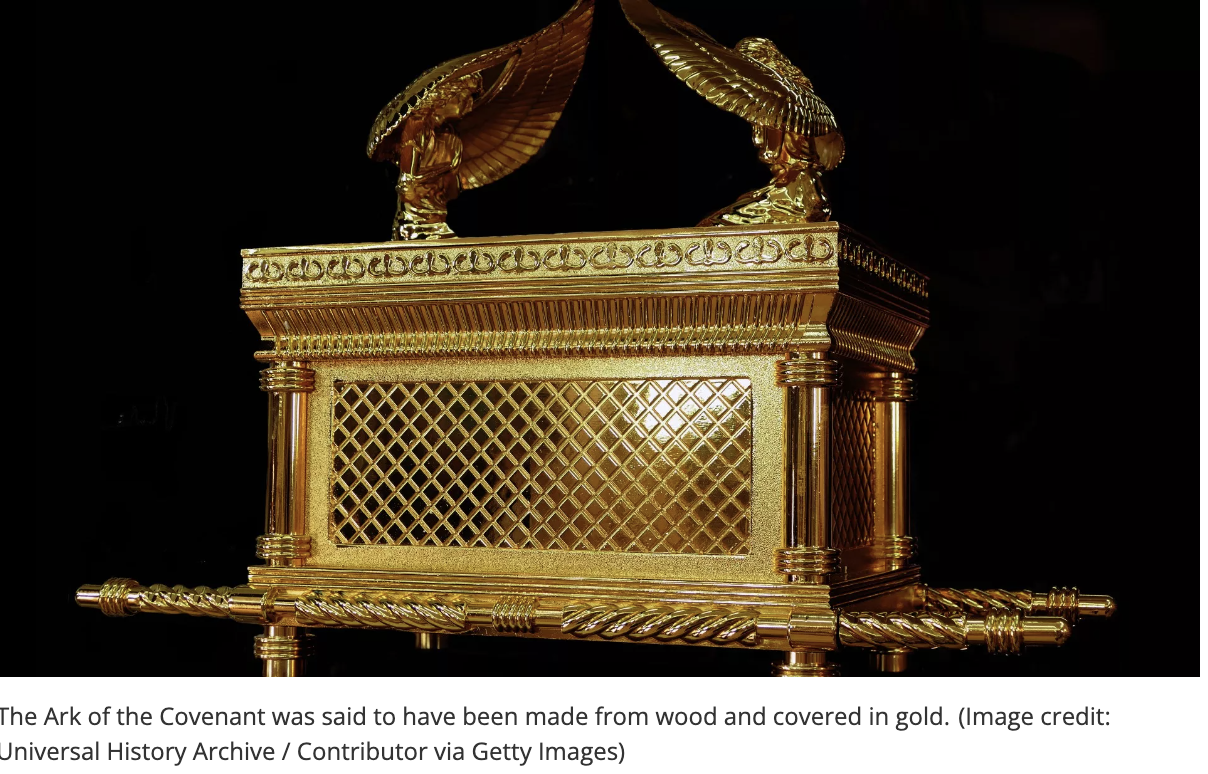VISIT OUR FACEBOOK PAGE!
TERAH
The Records of Terah - Genesis 11:10-27-
This man was in the direct line of descendants leading to Abraham after the Biblical flood. The gap between the flood and Abraham may not be as wide as some believe. The link between the two rests with the father of Abraham.
Despite the decreasing lifespans after the flood, there is evidence that Noah and his sons lived extremely long lives. Genesis 11:10 marks a transition in the genealogical records.
Whereas Shem was the one believed to have kept the records of Ancient Israel rom Genesis 10:1 through 11:9, it is Terah, the father of Abram, who is believed to have picked up the record.
God had been working directly through mankind as a whole, yet as a whole (minus Noah) they had rebelled against Him. Now, He shifted His focus to work through individuals.
Though He was not ready to establish a nation unto Him, the promised seed had been preserved, the records of that seed were intact, and His plan for the continuation of Ancient Israel was still in action.
If one takes the genealogical records at face value, with no gaps existing, then it is believed that Shem lived until after Terah's death. Even Noah himself lived until Abram's father was 128 years old.
TERAH PAGE CONTENTS
Click on a link to view that section of Terah: The Father of Abraham.
Map of the Balikh & Habor Rivers
HomelandTerah would have had plenty of opportunities to talk with these great men about the events leading up to the present time. He lived in the ninth generation after the flood.
It is significant to stress that Shem was alive when Abram was born. God had allowed this man to live an extremely long post flood life.
It is natural to assume Shem was instrumental in the tutelage and preservation of God's decrees to his descendants. Many scholars believe Shem was Melchizedek , the priest of Salem who blessed Abraham later in Genesis.
If there are no gaps in the record, then Shem lived 278 years after Terah's birth. He was undoubtedly regarded as a sage, a true man of God, with direct knowledge and experience of God's miraculous nature.
It is probable that Abraham's father spent countless hours listening to this wise man talk of God, and he passed this knowledge onto his sons.
As God had changed His nature of interactions with mankind, He saw it fit to allow one who had witnessed His early miracles to stay alive. Shem was God's link to the old world, and he was allowed to live in order to encourage the later generations.
Shem, then, becomes a vital link in Ancient Israel. The contributions of Abraham's father, though brief, are very important. He traced the lineage of Ancient Israel from Shem, up to the birth of his son Abram.
These records provide the foundation of ancient Israel; as God transitioned from direct interaction with mankind as a whole, to the preservation of the seed through individuals.
Up to Genesis 11, the names of these early patriarchs had not been given. In order, the names of these men are; Peleg, Reu, Serug, Nahor (the grandfather of Abram), and Terah, the father of Abraham.
Share Your Thoughts On Terah & Abraham!
What is your opinion on who first received God's call? Do you have insights into the life of Terah? Click on the link above to give us your insights, thoughts, comments, and questions.
The Records of Isaac
With the words of Genesis 11:27; "Now these are the generations of Terah.", the duty of Terah had been completed. From here, the record is picked up by Abram's son Isaac.
Terah lived until Isaac was 35 years old, so it is possible that Isaac received this record directly from his grandfather.
However, according to Joshua 24:2-3, Terah is believed to have become an idolater in his later years. It is probable that Isaac received the records of ancient Israel from his father Abram. Abram had been brought up with these records, and must have taken them with him when he left his father.
The Bible lists his other two other sons; Nahor and Haran, the father of Lot. Both of these names are associated with cities in Mesopotamia (Gen. 24:10; 28:10). The area of Aram - Naharaim was the land of Abraham's family.
Haran bore the name of his son. Nahor was also a city nearby. Other cities in the area suggested strong links as well to Terah and his family. Abraham sent for a wife from the house of his father for his son Isaac from this region.
Thus, the record establishes that Abram's family was indeed from the area of Mesopotamia. With this in mind, it makes perfect sense that Abram's family was from Ur. Furthermore, Ur was the birthplace of Abraham.
The Migration
Gen. 11:24-32
The verses leading up to the actual migration (v. 31) give the necessary background information. Terah's son Nahor, Abram's brother, was named after his grandfather (Gen. 11:24). The third brother mentioned, Haran, died when he was less than 135 years of age. Haran left behind a son, Lot, the nephew of Nahor and Abram. Lot would gravitate to his uncle Abram. He accompanied Abram to Canaan.
The wives of both Abram and Nahor are given in Genesis 11:29. The wife of Haran, Lot's mother, is not given. Abram married Sarai , who we are told is barren in verse 30, and we are told later is the half-sister of Abram, from the same father, but of a different mother (Gen. 20:12).
Nahor married Milcah, his niece, the daughter of Haran, and Lot's sister. As Lot became attached to his Uncle Abram, perhaps Nahor took in Milcah in a similar fashion. When she reached the age of womanhood, he married her.
These intermarriages of Ancient Israel's patriarchs seem incestuous to modern day readers. God seems to have lightened His previous commandment to Adam and Eve, as was custom from time to time regarding marriage in ancient Israel. However, such marriages were later forbidden by Mosaic Law.
But at such an early age in mankind, the genetic pool was such that mutations had not yet taken root. Another view of these marriages was the need for spiritual purity. In this time of the development of Israel, God's commandments had not been fully introduced as they are in today's world. It becomes evident as one reads the Old Testament that polygamy and inter-marriage with Canaanites often brought trouble for Israel.
Terah and his family had been chosen by God to establish His seed on earth. The need for spiritual purity surpassed the need for genetic purity at this particular point in time.
With God's calling of Terah in verse 31, Ancient Israel was set on an irrevocable course. God had called him to gather his family and leave Ur behind.
They were to travel to the land of Canaan , and establish this as the beginning of a new nation. Genesis 11:31 depicts God's calling, and those that left Ur.
"And Terah took Abram his son, and Lot the son of Haran his son's son, and Sarai his daughter-in-law, his son Abram'swife; and they went forth with them from Ur of the Chaldees, to go into the land of Canaan; and they came to Haran and dwelt there."
It has been suggested that God appeared initially to both Terah and Abram, thus the two left together. In any case, God's call was to travel to the land of Canaan. However, upon arriving in Haran, they "dwelt there".
The city carried the name of Terah's son Haran. It rested in the Balikh and Habor River valley, in Northwest Mesopotamia.
It was located on an important trade route coming up from Canaan and Syria . The city quickly became an important city, and is still in existence today, carrying the same name.
Haran was approximately 600 miles Northwest from Ur, whereas Canaan was about the same distance due west from Ur. The Bible does not state why the party set out for Haran.
Study Resource
Readers rave about powerful author Beth Moore's in-depth study into the God of Abraham, Isaac, and Jacob. Her book, The Patriarchs: Encountering the God of Abraham, Isaac and Jacob, courtesy of amazon.com, presents the biblical patriarchs in their humanity, and provides a unique and wonderful foundation in the book of Genesis!
The Patriarchs: Encountering the God of Abraham, Isaac and Jacob
Abraham's Journey to Canaan
The western route led through the desert directly into the land of Canaan. The route taken by Terah and his family led northwest, through the Euphrates River Valley, a much easier and safer route.
Perhaps Abraham's father was not physically able to make the arduous journey through the desert, as he was probably over 100 years old when they undertook the journey.
Perhaps he had unfinished affairs that required his attention in Haran following his son's untimely death. Whatever the reason, upon arriving in Haran, Terah never fulfilled God's command to go to Canaan. The initial party included Terah, Abram, Sarai, and Lot. Nahor, Milcah, and maybe Iscah, stayed behind in Ur.
However, Nahor seemingly brought his family up to Haran at a later date (Gen. 24:10; 28:2), reuniting the family temporarily. The area surrounding the Balikh and Habor Rivers bear the biblical names Paddan-aram and Aram-naharaim. Middle Bronze Age records indicate a number of towns in this region that bear names of Abram's relatives. Serug, Pethor and Nahor attest to the significant influence the family of Abram carried in this region.
The Homeland of Terah
Close ties between Ancient Israel and this area are evident throughout scripture, as both Abraham and Isaac sought wives for their sons from kindred people living in and around Haran. Haran, like Babylon and the other great metropolitan cities of Mesopotamia, provided an immense amount of wealth and comfort for those living in the city.
Abraham's father became involved in the idolatrous practices associated with this wealth and culture, and settled permanently in Haran, dying at 205 years old.
Abraham, no doubt, struggled with his father's involvement in these practices, and it eventually became clear that his father was not leaving.
Whereas it is possible that Terah was the one originally meant to inherit God's promise, and establish the foundation of Ancient Israel, God now turned to Terah's son, Abram.
INTO CANAAN
Joshua 24:2 hints at Terah's disobedience towards God. Consequently, God called on Abram to leave his father's household, and to plant the seed of Ancient Israel in Canaan.
"The Lord said to Abram, 'Leave your country, your people and your father's household and go to the land I will show you. I will make you into a great nation and I will bless you; I will make your name great, and you will be a blessing." --Gen. 12:1-2
God's call to Abram signified a change in God's approach to humanity. It has been stated above that God had been dealing with mankind as a whole. Now Ancient Israel would be founded through one man, and one nation.
Man had experienced an apostasy towards God. A few righteous men had lived lives of righteousness, and attempted to strive after God.
Yet, these men were scattered, and their voices were seldom heard.
God, though, will never be prevented from fulfilling His plan, and continuing "the seed of the woman" upon the face of the earth.
God was to establish a nation, His nation, to fulfill His commandments, and carry His word to the rest of the world.
Ancient Israel was to be founded upon a man named Abram, a descendant of Shem, the righteous seed of Noah.
Genesis 12:4-5 reveals Abram's party on his journey to Canaan. In Haran, Abram had acquired much wealth, and many servants through his business transactions.
Accompanying Abram was his wife Sarai, his nephew Lot, and "all the the possessions they had accumulated and the people they had acquired in Haran". Abram gathered his wife, his nephew, his servants, and all his assets, and set out for Canaan.
Canaan lay approximately 400 miles southwest of Haran. One must keep in mind Abram had never been to Canaan, and set out with nothing but faith in God's call to him.
He knew not where he was going, or where he would eventually settle down. Trade routes ran from Haran, to Damascus, and into the already occupied territories of Canaan.
The exact route of travel Abram took is unknown. The most direct route led through the desert into Damascus. The Tadmor Oasis was located along this route.
Tadmor was an ancient caravan city located between Mari in Mesopotamia, along the Euphrates, and Damascus. Following this route, Abram would have traveled southwest from Haran, through Tadmor, and into Damascus.
Another possibility was less dangerous, though longer. This route would have followed along the main branch of the International Coastal Highway.
Abram and his party would have traveled west from Haran, through Carchemish, then turning southwest through Aleppo, south to Qatna, then entering Damascus.
From Damascus two possible routes would have led Abram and his party into the land of Canaan. The less likely route would haveled Abram southwest from Damascus to Hazor.
Hazor was located on the Upper Jordan, north of the Sea of Galilee. The more probable route of crossing would have taken Abram south out of Damascus, thus entering Canaan from the east, along the Jabbok River.
This route seems more likely based on where the Bible says Abram's first stop in Canaan was. Genesis 6:4 describes Abram and his party stopping at a well known landmark of the time.
The NIV mentions; "the site of the great tree of Morehat Shechem". The King James states; "unto the place of Sichem, unto the plain of Moreh".
The better translation of the Hebrew word plain is, oak, or terabinth grove, belonging to a Canaanite named Moreh, who lived in Shechem. Shechem is located in the mountains of western Palestine.
From the Jabbok River, the Wadi Farah led upward to Shechem, thus a natural stopping point for Abram and his party. Throughout ancient Israel, Shechem and Jerusalem were the dominant influences in the central hill country.
It was here that Ancient Israel would be born. Genesis 12:7 portrays this birth with God's promise to Abraham.
"And the Lord appeared unto Abram, and said, 'Unto thy seed will I give this land'; and there builded he an altar unto the Lord, who appeared unto him."Back to Terah
Back to Ancient Israel
Back to Home Page
ISHMAEL CLINGS TO HIS MOTHER, HAGAR, AS HIS FATHER ABRAHAM CASTS THEM INTO THE WILDERNESS. ABRAHAM HAD BEEN ASSURED BY GOD THEY WOULD BE TAKEN CARE OF; AND OBLIGED SARAH'S WISHES, NOT HIS OWN.
Recent Articles
-
The History of Israel is explored from Genesis to Revelation.
Mar 26, 25 09:28 AM
Explore the history of Israel based on the Biblical account from Genesis to Revelation. -
The Tabernacle
Feb 27, 25 04:47 PM
The Tabernacle was where Yahweh met with his people before the First Temple was built. It was also called the Tent of Meeting. -
The Tabernacle of Moses
Feb 19, 25 09:50 AM
The tabernacle of Moses was built by Moses, per instruction from God, during the Exodus out of Egypt. It represented God's presence amongst His people. -
The Ark of the Covenant
Feb 19, 25 09:46 AM
The Ark of the Covenant is one of the most mystifying objects in all of human history. It's power was so great that Israel often carried it to the front lines. -
King David of Israel
Feb 19, 25 12:51 AM
The story of King David of Israel is a rags-to-riches tale of the family runt rising to national King. King David would become Israel's greatest king. -
The Nephilim
Feb 15, 25 10:35 PM
Were the Nephilim byproducts of fallen angels and women? Enoch wrote it was so, as did Moses. What mysteries lie buried in the pages of the Old Testament?
SAMUEL the SEER
Now Available in Print & eBook on Amazon!!
POPULAR TOPICS
Learn more about these popular topics below. The Bible is full of fascinating stories, characters and mysteries!
BIBLE MAPS
Explore the land of the Old Testament! View these maps of the Bible.

